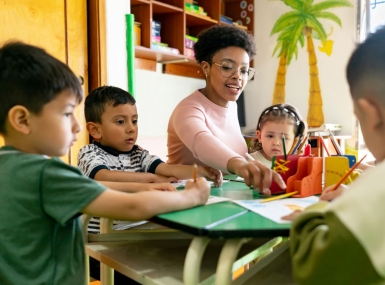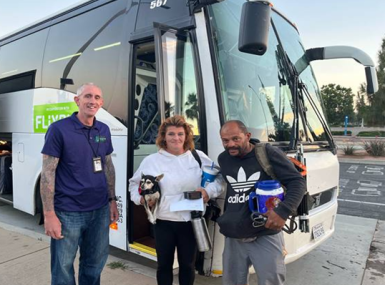Problem:
|
Some families have experienced generational poverty with no end in sight.
|
Solution:
|
Create a wraparound support network tailored to individual family needs, helping them break through the barriers keeping them from self-sufficiency.
|
Franklin County, Ohio was one of the first to declare racism a public health crisis. The county had collected extensive data, interviewing their residents, that showed minorities had higher rates of incarceration and poverty than others and the community was concerned. The county chose to act, attempting to break the cycle — one impoverished family at a time.
The Franklin County Board of Commissioners started the process of tackling equity in 2018, drafting an extensive data-driven analysis of the barriers in the community keeping the poor in poverty. They launched several initiatives in the years since, tackling everything from housing to education.
Learn more
The Franklin County Family Stabilization Unit program is the recipient of a Best in Category 2021 NACo Achievement Award.
In 2020, the commissioners approved a new pilot program called the Family Stabilization Unit (FSU) proposed by Joy Bivens, deputy administrator for Health and Human Services. The FSU is a partnership between the Brooklyn County Juvenile Justice System and Franklin County Human Services aimed at supporting families through a two-generation approach.
Bivens said the data is clear: Young boys involved in the juvenile justice system experience high rates of poverty.
The FSU works to recognize these vulnerable children as they enter the system and help identify struggles within their family. Walter Dillard, the deputy director of Strategic Initiatives, said the FSU then works to identify the strengths and shortcomings of the family in several categories, called economic mobility pathways or EMPath, which then add up to a “bridge score.”
The team uses the bridge score to help identify exactly what the family is lacking, working across siloed organizations to determine what care the family needs to achieve self-sufficiency. The bridge score indicates 70 and above as self-sufficient families. Most of the families FSU cares for fall around a 50-point average.
Dillard said after working in organizations like children’s services, he was tired of “all these agencies working with left brain, right brain and nobody’s talking to each other.” Instead, he set out to break down programmatic barriers and make proper connections between agencies.
“This is a collaboration for all of the Human Services entire ecosystem,” said Dillard. The FSU can offer SNAP, childcare, job assistance, education, housing, substance abuse counseling, Medicaid and more to support the needs of the family.
The FSU doesn’t simply “hand you off to somebody that helps with education” but forms a partnership, helping people through each step of the process, he noted.
The program gives participants “a chance for them to raise a healthy family in a safe home.” Bivens said it is not enough to improve the lives of the children in the justice system.
“There’s an environment they are going back into,” she said. “We need to look at that environment to figure out ‘Where are the barriers and how can we assist this family stabilization so that this young person does not reoffend?’”
The FSU continues to be a frontline program throughout the pandemic with trained specialists making home visits, creating relationships and building trust within the communities they serve. Dillard said the FSU may network with local schools and universities for even greater detection of those in need.
Deputy Director of Communications Bart Logan said the county went to its residents to ask what the pain points are, where are they being prevented from accessing services? FSU took that information and tries to “wrap our arms around these families” helping them move forward, he noted.
The success of the program has already encouraged other communities to contact Franklin County for advice on implementing their own version of the program.
“When you break down silos, people succeed,” said Bivens. “If we’re not talking to each other and we’re disjointed, what are we putting those families through who are already overwhelmed?”



